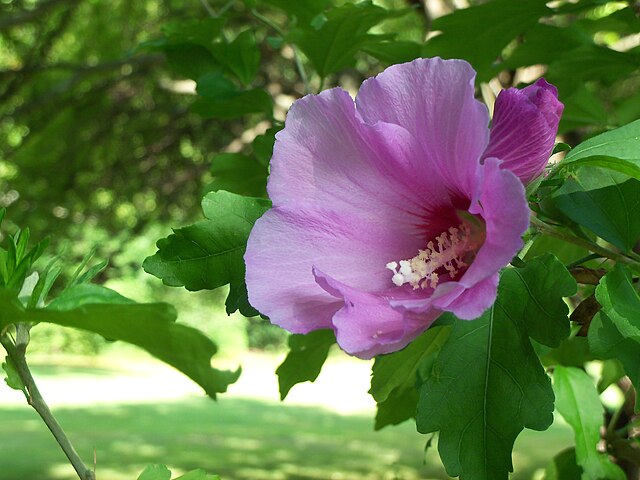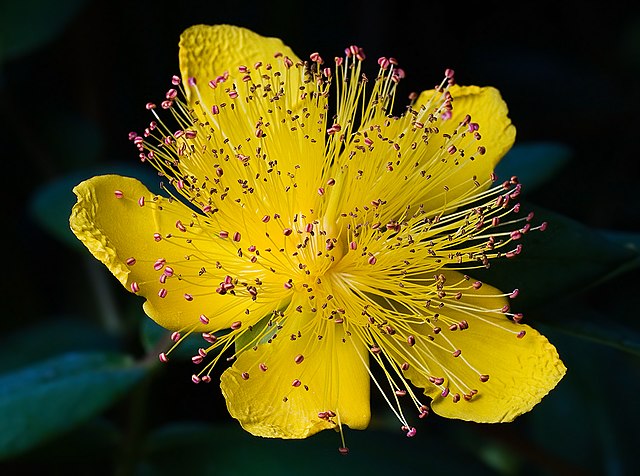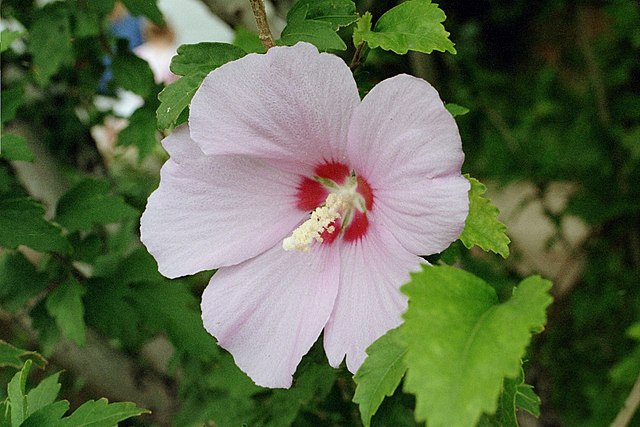Rose of Sharon is a biblical expression, though the identity of the plant referred to is unclear and is disputed among biblical scholars. It has become a common name for several different species of flowering plants that are valued in different parts of the world. In neither case does it refer to actual roses. The name's varied colloquial application has been used as an example of the lack of precision of common names, which can potentially cause confusion. "Rose of Sharon" has become a frequently used catch phrase in poetry and lyrics.
One plant commonly called "rose of Sharon" in the US is Hibiscus syriacus, here seen in bloom.
Hypericum calycinum
Hibiscus syriacus
Hibiscus syriacus double bloom
The Song of Songs, also called the Canticle of Canticles or the Song of Solomon, is an erotic poem, one of the five megillot ("scrolls") in the Ketuvim ('writings'), the last section of the Tanakh. It is unique within the Hebrew Bible: it shows no interest in Law or Covenant or the God of Israel, nor does it teach or explore wisdom, like Proverbs or Ecclesiastes—although it does have some affinities to wisdom literature, as the ascription to the 10th-century BCE King of Israel Solomon indicates. Instead, it celebrates sexual love, giving "the voices of two lovers, praising each other, yearning for each other, proffering invitations to enjoy".
Song of Songs (Cantique des Cantiques) by Gustave Moreau, 1893
Illustration for the first verse, a minstrel playing before Solomon (15th century Rothschild Mahzor)
A page of Rashi's interpretation of the megillot, National Library of Israel
The Shulamite by Albert Joseph Moore (1864)








